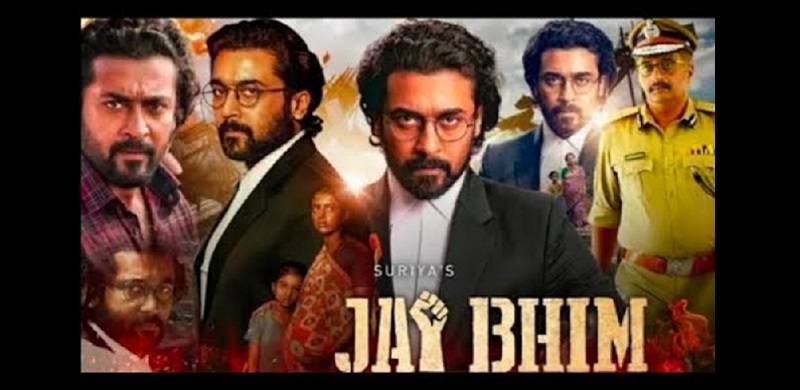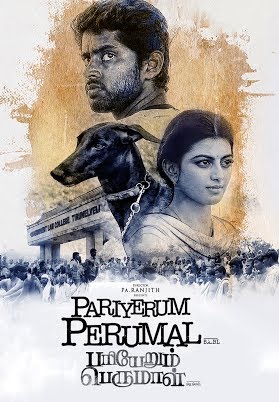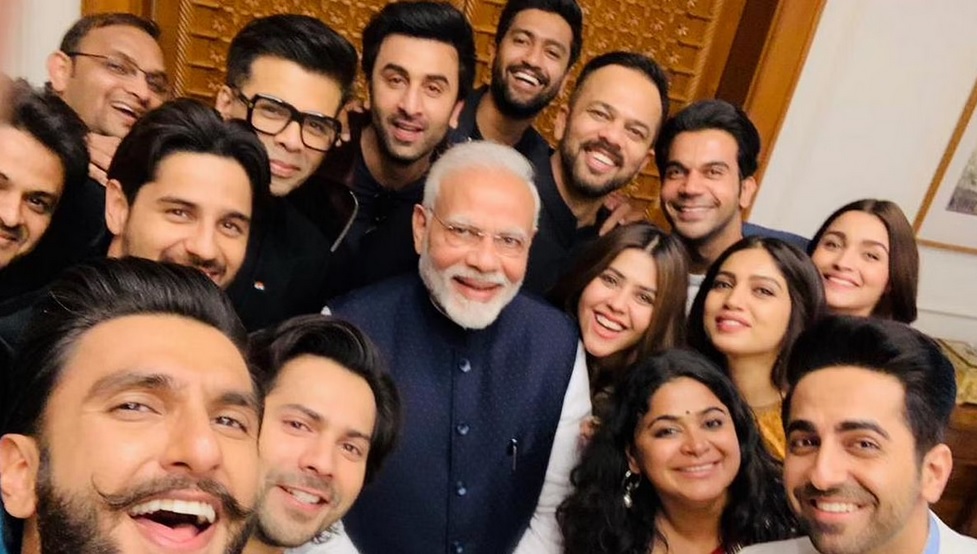
India’s versatile Bollywood industry has not only entertained people but has also worked as a powerful medium to broadcast social messages.
Films like Mother India, Boot Polish and Do Bigha Zameen have been masterpieces of combining art with highlighting real problems of the society. It is said that India’s first Prime Minister Jawaharlal Nehru stumbled upon the idea of starting rural cooperative banks after watching Mother India, the 1957 epic drama film directed by Mehboob Khan and starring Nargis, Sunil Dutt, Rajendra Kumar and Raaj Kumar. It was the story of a poverty-stricken village woman named Radha (Nargis), who, in the absence of her husband, struggles to raise her sons and survive against a cunning moneylender amidst many troubles.
But of late, this industry has said goodbye to the art and has been toeing the government's line, producing ultra-nationalist movies. Bashing Pakistan and showing minorities in a poor light is the latest formula to spice up the films at the box office. Being a popular medium, these films have contributed to polarising the society and convincing its audience that the root cause of India’s problem is either the Indian Muslim or Pakistan. Unfortunately, such films not only do brisk business but win kudos from the right-wing elements as they cater to the Rashtriya Swayamsevak Sangh's (RSS) ideology.
 The RSS has been always uncomfortable with the Bollywood icons right from Dilip Kumar alias Yusuf Khan to many other Khans. One important thing that had prevented Bollywood from toeing the communal line after Partition was that it had employed unusually a large number of Muslims - right from lyricists to scriptwriters, technicians and actors. The Hindu right-wing always wanted to edge out Muslims from this powerful medium.
The RSS has been always uncomfortable with the Bollywood icons right from Dilip Kumar alias Yusuf Khan to many other Khans. One important thing that had prevented Bollywood from toeing the communal line after Partition was that it had employed unusually a large number of Muslims - right from lyricists to scriptwriters, technicians and actors. The Hindu right-wing always wanted to edge out Muslims from this powerful medium.
However, the failure of Bollywood at maintaining its independence and the fact that it is taking the official and right-wing line has not deterred South Indian cinema, which continues to shoulder the responsibility of highlighting social issues and showing a mirror to the society. Movies like Karnan, Pariyerum Perumal and now Jai Bhim have highlighted that South Indian cinema has refused to toe the official line.
In fact, South Indian cinema is reminding us that beneath an imaginary macho India lies the real India marred by the caste system and atrocities at the hands of law enforcement agencies.
The film by its name appears to be around the life and work of Dr Bhimrao Ambedkar, the icon for Dalit and untouchables in India who had chaired the Drafting Committee of the Indian Constitution. While Ambedkar’s shadow and his struggle are depicted in the film, it is not about his life and work. He lives in the movie through the characters, who face discrimination at the hands of the elite, the educated and the government machinery. They face police brutalities just because they are from lower castes.
Story of untouchables
Based on a real-life incident from 1993, the film revolves around the lives of Tamil Nadu’s Irula community, who are considered untouchables. The lives of members of this community are marred by poverty, hunger and the struggle for justice. More than 70 years after the independence of India and abolition of untouchability, Irulas are still not allowed to stay within a village – and have a separate ghetto.
While the untouchables have no access to the spaces of the upper castes, they work on the fields of the landlords and catch rats that could destroy crops. These rats are their prized catch, for they would make a feast for the day. Rat meat is their luxury because that is the only meat that they can afford.
The journey of the film is a fight for justice. It touches upon several aspects of brutality that an untouchable faces in India – from being falsely accused of crimes, where the upper caste are set free and the lower caste are falsely charged for crimes not committed, just because of their caste status. Because the upper castes believe that those belonging to the lower caste are thieves, the untouchables are charged for everything from theft to murder.
From murder in custody to labelling an individual as a thief, the film takes on the journey to fight for justice. It also raises certain pertinent questions on Indian commercial cinema – which has an audience not just in India, but is popular world over. The film is an eye-opener and reminds us that the real India is not just about glamour, fancy homes, luxury cars and dancing around trees. It is also a bitter reminder for Bollywood, which has come down on its knees under pressure from the right-wing.
And while India may be going places on global forums, missing no opportunity to project itself as a world leader, this film reminds the country about how deep are the caste system and untouchability that exist in the society.
“This movie has gone a step ahead from parallel Indian cinema. Not only does it tell us a serious story, but brings forward the social context and reminds that despite a long struggle for social reform, the situation of ground has not changed much,” explains veteran journalist and film critic Urmilesh.
The secular character of Bollywood
Bollywood, which is popular not just in India but has an audience across the globe, can attribute its success so far to its secular character. Its character has been as diverse as India itself. But for a long time, it has been dominated by Muslim actors, whose fan following knows no religious boundary.
Besides Bollywood, the National School of Drama is based in New Delhi, and the Film and Television Institute of India (FTII) at Pune. Located at just two hours drive from Mumbai’s Bollywood, the latter has over generations had a leftist lineage and has raised serious social issues through its art.
These institutions, too, have come under the government’s scanner. But they have stood up and continued to fight for their autonomy and free-speech spaces. Soon after coming to power in 2014, India’s Prime Minister Narendra Modi’s government-appointed actor Gajendra Chauhan as FTII Chairman. The institute witnessed a 140-day strike against his appointment. Not only were his credentials challenged by the institute‘s students and alumni, but also by the prominent members of the film fraternity, including late actor Rishi Kapoor and veteran actor Anupam Kher. Chauhan’s affiliations with the RSS and BJP are well known and he was handpicked by the RSS to control the premium institute.
“There is a constant pattern. Any government to control the minds and intellect of the people, wants to take control over history and cultural institutions and this was one such move,” explains Professor Rattan Lal of Delhi University.
For the past few years, even Bollywood has been under constant attack from the Hindutva army. Besides challenging the content and over-scrutinising the subjects on which these films are made, celebrities have been accused of murder, conspiracy, drug-taking, embezzlement and generalised forms of traitorous behaviour.
And after all, not only does the BJP want to destroy the secular character of cinema, but also proposes to relocate this industry from Mumbai to the ‘Hindu heartlands’ of Uttar Pradesh.
Hindu-Muslim divide
Even the most secular part of Bollywood has been divided into Hindus and Muslims. Actors like Kangana Ranaut and Akshay Kumar have been identified as Hindu faces of the industry and the likes of veteran actor Javed Akthar and Swara Bhaskar – who has been critical of the government policies and its treatment towards students and the minorities – have been labelled anti-national. And if nothing, an army of social media trolls has been set against them.
And lest we forget, we are discussing the very same Bollywood where, before the BJP came to power, actors including Amitabh Bachchan would take to Twitter to speak on issues of price rises and taxation issues in the industry. They have now gone into a self-censorship mode, fearing that being critical of the government could be inviting trouble.
Films like Mother India, Boot Polish and Do Bigha Zameen have been masterpieces of combining art with highlighting real problems of the society. It is said that India’s first Prime Minister Jawaharlal Nehru stumbled upon the idea of starting rural cooperative banks after watching Mother India, the 1957 epic drama film directed by Mehboob Khan and starring Nargis, Sunil Dutt, Rajendra Kumar and Raaj Kumar. It was the story of a poverty-stricken village woman named Radha (Nargis), who, in the absence of her husband, struggles to raise her sons and survive against a cunning moneylender amidst many troubles.
But of late, this industry has said goodbye to the art and has been toeing the government's line, producing ultra-nationalist movies. Bashing Pakistan and showing minorities in a poor light is the latest formula to spice up the films at the box office. Being a popular medium, these films have contributed to polarising the society and convincing its audience that the root cause of India’s problem is either the Indian Muslim or Pakistan. Unfortunately, such films not only do brisk business but win kudos from the right-wing elements as they cater to the Rashtriya Swayamsevak Sangh's (RSS) ideology.
South Indian cinema is reminding us that beneath an imaginary macho India lies the real India marred by the caste system and atrocities at the hands of law enforcement agencies
 The RSS has been always uncomfortable with the Bollywood icons right from Dilip Kumar alias Yusuf Khan to many other Khans. One important thing that had prevented Bollywood from toeing the communal line after Partition was that it had employed unusually a large number of Muslims - right from lyricists to scriptwriters, technicians and actors. The Hindu right-wing always wanted to edge out Muslims from this powerful medium.
The RSS has been always uncomfortable with the Bollywood icons right from Dilip Kumar alias Yusuf Khan to many other Khans. One important thing that had prevented Bollywood from toeing the communal line after Partition was that it had employed unusually a large number of Muslims - right from lyricists to scriptwriters, technicians and actors. The Hindu right-wing always wanted to edge out Muslims from this powerful medium.However, the failure of Bollywood at maintaining its independence and the fact that it is taking the official and right-wing line has not deterred South Indian cinema, which continues to shoulder the responsibility of highlighting social issues and showing a mirror to the society. Movies like Karnan, Pariyerum Perumal and now Jai Bhim have highlighted that South Indian cinema has refused to toe the official line.
In fact, South Indian cinema is reminding us that beneath an imaginary macho India lies the real India marred by the caste system and atrocities at the hands of law enforcement agencies.
The film by its name appears to be around the life and work of Dr Bhimrao Ambedkar, the icon for Dalit and untouchables in India who had chaired the Drafting Committee of the Indian Constitution. While Ambedkar’s shadow and his struggle are depicted in the film, it is not about his life and work. He lives in the movie through the characters, who face discrimination at the hands of the elite, the educated and the government machinery. They face police brutalities just because they are from lower castes.
Story of untouchables
Based on a real-life incident from 1993, the film revolves around the lives of Tamil Nadu’s Irula community, who are considered untouchables. The lives of members of this community are marred by poverty, hunger and the struggle for justice. More than 70 years after the independence of India and abolition of untouchability, Irulas are still not allowed to stay within a village – and have a separate ghetto.
While the untouchables have no access to the spaces of the upper castes, they work on the fields of the landlords and catch rats that could destroy crops. These rats are their prized catch, for they would make a feast for the day. Rat meat is their luxury because that is the only meat that they can afford.
The journey of the film is a fight for justice. It touches upon several aspects of brutality that an untouchable faces in India – from being falsely accused of crimes, where the upper caste are set free and the lower caste are falsely charged for crimes not committed, just because of their caste status. Because the upper castes believe that those belonging to the lower caste are thieves, the untouchables are charged for everything from theft to murder.
Bollywood, which is popular not just in India but has an audience across the globe, can attribute its success so far to its secular character
From murder in custody to labelling an individual as a thief, the film takes on the journey to fight for justice. It also raises certain pertinent questions on Indian commercial cinema – which has an audience not just in India, but is popular world over. The film is an eye-opener and reminds us that the real India is not just about glamour, fancy homes, luxury cars and dancing around trees. It is also a bitter reminder for Bollywood, which has come down on its knees under pressure from the right-wing.
And while India may be going places on global forums, missing no opportunity to project itself as a world leader, this film reminds the country about how deep are the caste system and untouchability that exist in the society.
“This movie has gone a step ahead from parallel Indian cinema. Not only does it tell us a serious story, but brings forward the social context and reminds that despite a long struggle for social reform, the situation of ground has not changed much,” explains veteran journalist and film critic Urmilesh.
The secular character of Bollywood
Bollywood, which is popular not just in India but has an audience across the globe, can attribute its success so far to its secular character. Its character has been as diverse as India itself. But for a long time, it has been dominated by Muslim actors, whose fan following knows no religious boundary.
Besides Bollywood, the National School of Drama is based in New Delhi, and the Film and Television Institute of India (FTII) at Pune. Located at just two hours drive from Mumbai’s Bollywood, the latter has over generations had a leftist lineage and has raised serious social issues through its art.
These institutions, too, have come under the government’s scanner. But they have stood up and continued to fight for their autonomy and free-speech spaces. Soon after coming to power in 2014, India’s Prime Minister Narendra Modi’s government-appointed actor Gajendra Chauhan as FTII Chairman. The institute witnessed a 140-day strike against his appointment. Not only were his credentials challenged by the institute‘s students and alumni, but also by the prominent members of the film fraternity, including late actor Rishi Kapoor and veteran actor Anupam Kher. Chauhan’s affiliations with the RSS and BJP are well known and he was handpicked by the RSS to control the premium institute.

“There is a constant pattern. Any government to control the minds and intellect of the people, wants to take control over history and cultural institutions and this was one such move,” explains Professor Rattan Lal of Delhi University.
For the past few years, even Bollywood has been under constant attack from the Hindutva army. Besides challenging the content and over-scrutinising the subjects on which these films are made, celebrities have been accused of murder, conspiracy, drug-taking, embezzlement and generalised forms of traitorous behaviour.
And after all, not only does the BJP want to destroy the secular character of cinema, but also proposes to relocate this industry from Mumbai to the ‘Hindu heartlands’ of Uttar Pradesh.
Hindu-Muslim divide
Even the most secular part of Bollywood has been divided into Hindus and Muslims. Actors like Kangana Ranaut and Akshay Kumar have been identified as Hindu faces of the industry and the likes of veteran actor Javed Akthar and Swara Bhaskar – who has been critical of the government policies and its treatment towards students and the minorities – have been labelled anti-national. And if nothing, an army of social media trolls has been set against them.
And lest we forget, we are discussing the very same Bollywood where, before the BJP came to power, actors including Amitabh Bachchan would take to Twitter to speak on issues of price rises and taxation issues in the industry. They have now gone into a self-censorship mode, fearing that being critical of the government could be inviting trouble.

